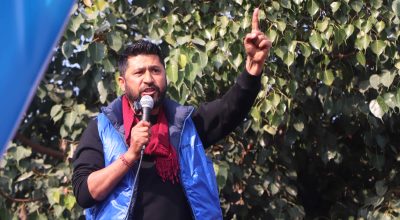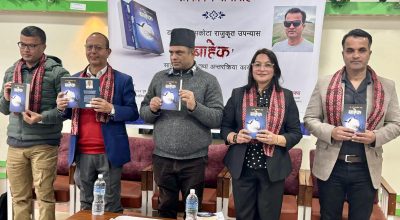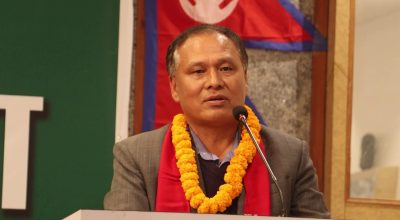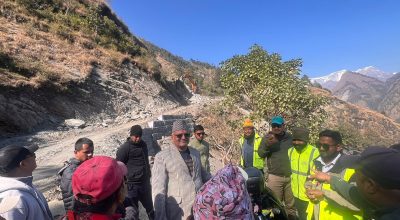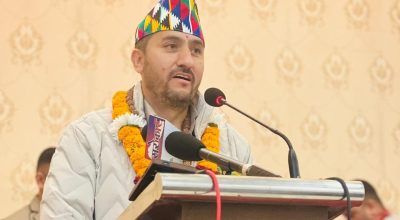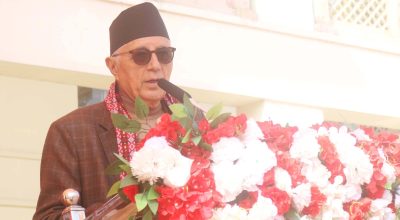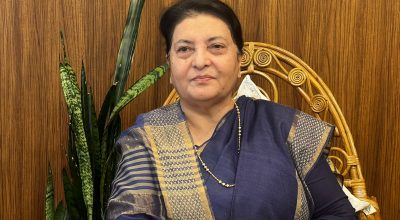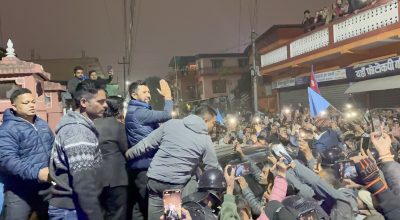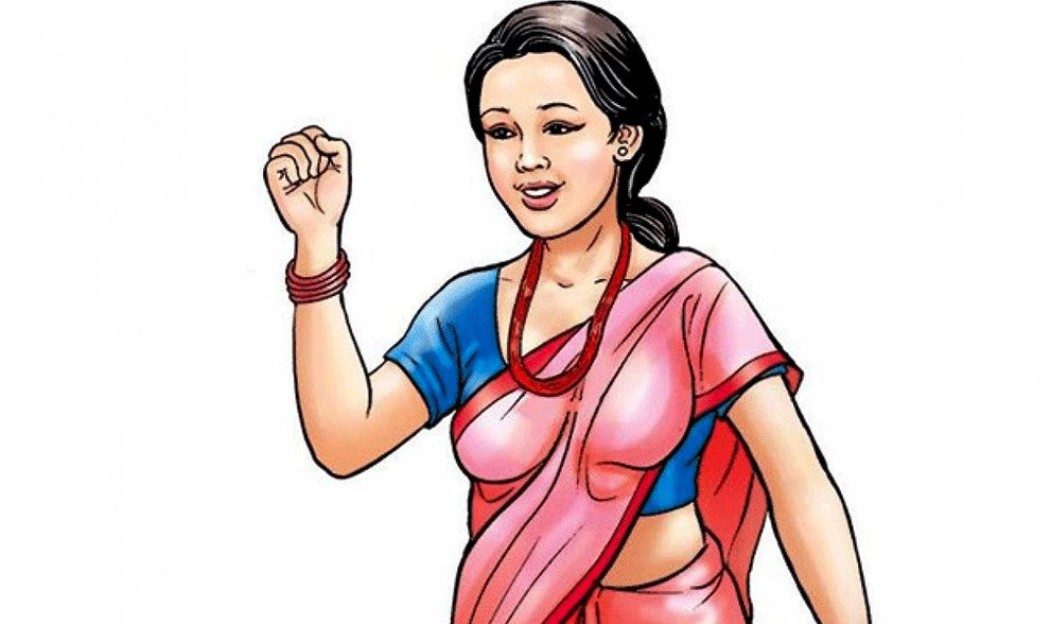
- Lilesh Kumar Yadav
Kathmandu, Aug 20: Discrimination against women refers to the unjust treatment, exclusion, or disadvantage faced by women and girls based on their gender. It involves treating women less favorably than men in various aspects of life, including employment, education, social and economic opportunities, and everyday interactions. Every 1st of Falgun each year, top non-governmental organizations (NGOs), international non-governmental organizations (INGOs), and leaders discuss women’s discrimination. Leaders assert that the country has made significant progress in empowering women. Many women have achieved top positions in the past, such as Bidhya Devi Bhandari, the second President of Nepal, and Sushila Karki, the former Chief Justice of the Supreme Court of Nepal and the only woman to have held the post. Women also hold ministerial positions in Nepal, with many belonging to affluent and educated families.
Today, I am discussing the challenges faced by women in the villages of Nepal. The real facts reveal discrimination in education, health services, job payment, and sexual violence in places such as schools, hospitals, and public transportation. Many women in Nepal, particularly those from rural areas, remain unpaid family members and are often excluded from making important decisions in the family.
Birth Challenge
All living beings are born into the world, but the discrimination faced by girl babies at birth is not just a problem in the hilly regions of Nepal; it is a significant issue in the Madhesh region of Nepal. When a family welcomes their first baby girl, they try to express joy. However, if a woman gives birth to a second or third girl, family members may harbor negative feelings towards the mother. Discrimination against the girl child and the mother becomes evident. In many cases, family members express disappointment when informed that the upcoming baby is a girl. Unfortunately, this discrimination can even lead to harmful practices, such as gender-based prenatal sex determination, where families may consider avoiding or terminating the pregnancy if the unborn child is identified as a girl. This has resulted in a higher incidence of prenatal deaths for baby girls. So that male children are more than female children. There are 1,290,525 male children and 1,148,758 female children aged 0–4 in the country. The female population is 1, 41,767 less than the male population.
Education
Education is an equal opportunity for both males and females, but girls often face significant discrimination in education. Many families do not treat their sons and daughters equally when it comes to educational opportunities. While boys may have the chance to attend private or costly schools, girls are often limited to government schools. In middle-class families, boys may have opportunities for higher-level education outside the village, but girls often do not receive the same opportunities. In the Madhesh region, many girls are married off after completing their Secondary School Certificate (SSC) or +2 education. Unfortunately, families below the poverty line often do not provide educational opportunities for girls. According to the Government of Nepal’s Office of the Prime Minister and Council of Ministers (National Statistics Office), the literacy rate in Nepal is 76.2%, with males at 83.6% and females at 69.4%. The female literacy rate is 14.2% lower than the male literacy rate. The literacy rate in the Madhesh Province is lower than in the other six provinces. The literacy rate in Madhesh Province is 63.5%, with males at 72.5% and females at 54.7%.
Violence against women
Violence against women is one of the major issues in Nepal. According to Women Rehabilitation Centre, the total number of registered incidents is 1175, including 179 cases of domestic violence, 179 cases of rape, 115 cases of sexual abuse, 25 cases of human trafficking, 69 cases of child marriage, 47 cases of dowry-related violence, 24 cases of witchcraft allegations, and 130 cases of polygamy. The highest incidence of domestic violence is reported in Koshi Province with 358 cases, and the highest number of rape cases (72) is also in Koshi Province, surpassing other forms of violence. Child marriage is more prevalent in Koshi Province with 28 cases while sexual abuse, dowry-related violence, witchcraft allegations, and polygamy are also higher in Madhesh province with 54, 25, 10, and 47 cases respectively.
Health care discrimination
Health care discrimination is a serious issue that affects many women in Nepal. Women may have difficulty accessing quality health care due to several factors, including poverty, lack of education, and lack of access to transportation. In addition, women in Nepal are often more likely to experience discrimination and mistreatment when seeking medical treatment, which can further discourage them from seeking the care they need. According to the United Nations, globally, a woman dies every two minutes due to pregnancy or childbirth-related complications. In Nepal maternal mortality rate has reduced from 539 per 100,000 live births in 1996 to 239 per 100,000 live births in 2016. But progress slowed. Currently, every preventable death is one too many.
Women Leadership
The 2015 Constitution mandates that at least one woman be included among the nation’s highest positions, including President or Vice-President, Speaker or Deputy Speaker, and Chair or Vice-Chair of the National Assembly. At the municipality level, at least one of the mayor and deputy mayor positions must be filled by a woman. At the local level, women hold at least 40% of all top political positions. In Nepal, there are 753 local governments. However, in the 2022 election, there were 25 Mayors/Chairs, 562 Deputy Mayors/Vice-Chairs, and 69 Ward Chairs. Despite holding these positions, women may face challenges in making significant decisions without consulting their husbands.
Restrictions on women’s freedom
Women in Nepal face numerous restrictions on their freedom. This can include societal norms and expectations that limit their choices and opportunities, as well as legal barriers that discriminate against them. These restrictions can make it difficult for women to participate fully in society and make their own decisions. It is important for the government and society to address these issues and work towards equality and inclusion for women. This can include implementing laws and policies to protect women’s rights, as well as changing cultural attitudes. However, the lack of women’s freedom should be addressed before completing their education. Many girls are forced into marriage due to this lack of freedom. In such cases, parental members make decisions about the future of these girls and women. Remember, advocating for women’s rights and empowerment is crucial for a more equitable society.
Overall, gender discrimination in Nepal is a widespread and persistent problem that affects women and girls across the country. That’s why the work of our charity is so important. We focus on fighting gender discrimination in Nepal through our work, and we believe that everyone deserves to be treated with respect and equality. That’s why it is so important to donate to our cause. Your support helps us to continue our work to create a more just and equal society for all.





